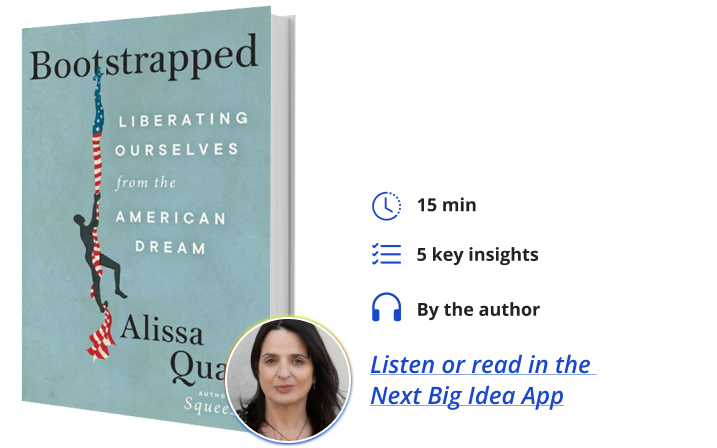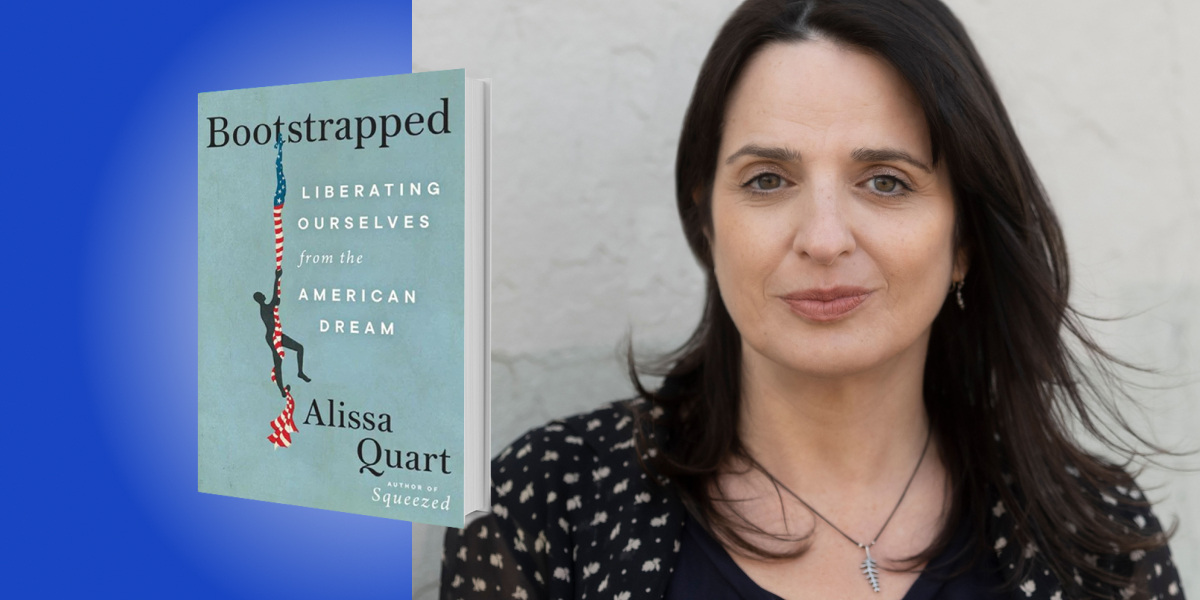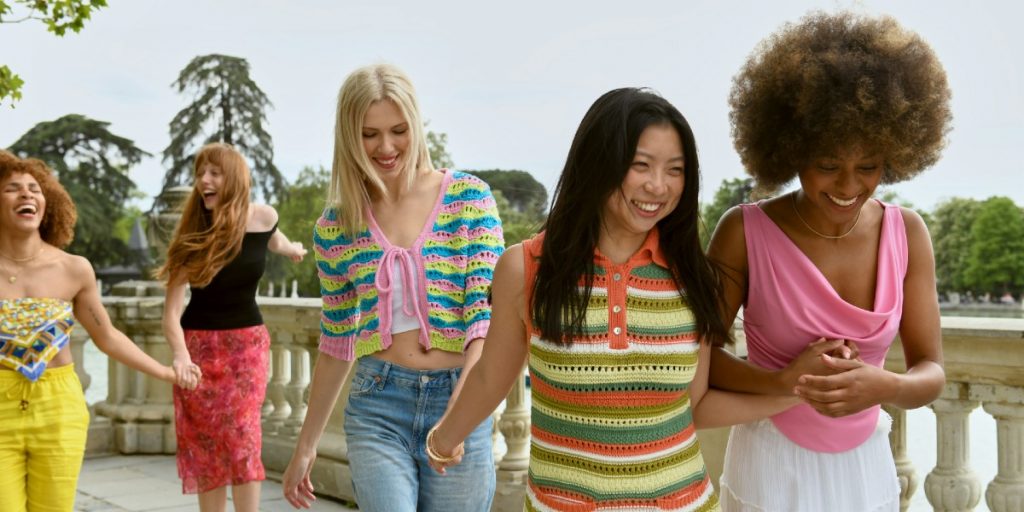Alissa Quart is an author, journalist, editor, and executive director of the Economic Hardship Reporting Project. She has also written for the New York Times, the Washington Post, and Time Magazine.
Below, Alissa shares 5 key insights from her new book, Bootstrapped: Liberating Ourselves from the American Dream. Listen to the audio version—read by Alissa herself—in the Next Big Idea App.

1. No one is actually self-made.
Ever since the term “self-made men” was first coined in the 1830s by the Kentucky representative Henry Clay, there’s been a popular American notion that you can succeed without help from relatives, your government, or your community. Clay initially used the phrase in the U.S. Senate to praise his state’s manufacturers. In his case, it also meant that the entrepreneurs of his state were self-propelled and that their labor was their own—ignoring the fact that many of those actually doing the work were enslaved.
In the two centuries since, claiming to be “self-made” has become the signature of a wide range of people, from those at the apex of Silicon Valley to Donald Trump. While it’s tempting to assert that one is self-sufficient and self-invented, most who push for this status are dependent on many others for their creation. In other words, being truly “self-made” is an impossibility, and to claim that you have acted with utter independence usually means that you are denying something. Often this means ignoring the role of our parents, teachers, or caretakers, as well as the roles of wealth, gender, race, and inherited property. There’s a delusion when people say of their financial success, “I did it alone,” denying the web of relatedness all of us dwell in.
This individualist fantasy also shapes some voters’ choice of politicians, as they are drawn most to those who insist that they have succeeded entirely by themselves. So let’s retire the concept of the “self-made man.” Kylie Jenner is not “self-made,” and neither are you and I.
2. The “pull yourself up by your bootstraps” story is toxic.
The idea that we can, and must, “pull ourselves up by our bootstraps” is an impossibility, and it’s also toxic. The individualism it insists upon can be isolating and draining. We are social creatures who find strength in reciprocity and giving, and find meaning in belonging. The bootstraps narrative doesn’t and, in fact, it comes along with a helping of self-blame. According to pollsters, an inordinate number of middle-class Americans in focus groups believed that “if they didn’t make it, it’s because of themselves.” They also expressed self-loathing around any perceived setbacks they had experienced.
“People start to wonder what they may have done wrong to wind up in their circumstances.”
It’s dangerous for us to think that we are the sole creators of our own destinies, and if we don’t quite manage to achieve that, to question our value. If self-reliance is the ultimate virtue, those who can’t or won’t manage this are encouraged to find themselves wanting.
In one study, more than half of Republicans agreed with the statement, “People get stuck in poverty primarily because they make bad decisions or lack the ambition to do better in life.” This is the kind of thinking that results from hundreds of years of claiming that everyone who wants to get ahead can do so.
This mindset is so pervasive that it leads to self-hatred. People start to wonder what they may have done wrong to wind up in their circumstances; often the reason is being born to a family without adequate savings, or having accrued educational debt due to the higher learning they were told to acquire. Those who are poor have internalized this thinking, faulting themselves alone. According to a study in 2015 by Oxford University and the Joseph Rowntree Foundation, poorer people tend to experience a “negative self-stereotyping effect,” absorbing the media clichés and considering themselves to be low in competence, and even flawed at the root. In other words, the bootstraps story harms many of us, with the potential exception of the richest.
3. Interdependence and even dependence take craft and skill.
It takes craft and skill to be dependent on others, even though mutual dependence is, in fact, our natural condition. The ability to be gracefully dependent on others, and institutions, is called “the art of dependence.” As a society e should celebrate not only independence, but dependence as well.
“Asking for help can even involve heroism.”
The art of dependence means accepting aid with magnanimousness, and crucially, recognizing the importance of others. It takes dignity to lean on friends, loved ones, colleagues, and even on the state. Admitting a need and asking for help, even filling out forms for student financial aid, shouldn’t be embarrassing. We can reframe it as a way of more intensely engaging with society. Asking for help can even involve heroism; in a country that stigmatizes dependence, acknowledging need takes strength.
4. The new American Dream is a mutual one.
There are ways in which ordinary people are building a new American Dream, and we should follow their lead and join them; these new directions can be quite surprising. One example of these new American Dreamers is those who are part of the multiple mutual aids across the country that rose up during the pandemic. They are rethinking charity, and givers and receivers are more aligned. When we embrace the mutual in our lives, our work goes faster, and we are also less anxious and depressed. Human beings are biologically wired to be in relation to each other; our bodies and minds are regulated by one another.
The new American Dream, or “anti-bootstrapping,” can be seen in alternative labor organization meetings or in picketing for higher salaries. The new American Dream is also found in workers entering their workplaces on different terms—for example, the worker-owners of today’s rising number of worker cooperatives. It also includes the participatory budgeting citizens’ groups that have emerged in cities around the country, and are holding municipal governments accountable. Ordinary people are learning the ins and outs of their local government and linking up with other residents to help shift the millions of municipal dollars to create new neighborhood resources.
5. The dystopian social safety net is important.
Sometimes voluntarism and citizen collective efforts are really not the answer to social ills. It is, however, the only answer we have right now, and the resulting effect is a “dystopian social safety net.” This describes social programs or crowdfunding arrangements that should not have to exist, yet are heavily relied upon. When speaking to a number of people who depend on these platforms, they believe that these needs should be supported through government aid, not by online charity drives. Why should we be collecting money from friends, and even near-strangers on the internet, to pay for our medical bills?
“Why should we be collecting money from friends, and even near-strangers on the internet, to pay for our medical bills?”
The dystopian social safety net also includes nonprofits throughout the country that are forced to open warming centers designed to prevent those experiencing homelessness from freezing during cold snaps. For slightly more solvent, unhoused people, there are safe parking initiatives; designated lots double as housing for those living out of their cars. In Walmart, for example, parking lots and other commercial lots usually used for loading and unloading have become ad-hoc overnight residences. The dystopian social safety net also includes organizations like the Patient Advocate Foundation with its Co-Pay Relief program, which can step in if you receive surprising and wildly excessive medical bills you are unable to pay. The dental fairs—free two-day dental clinics—are geared toward the many people who cannot afford tooth care (fewer than half of American dentists accept Medicaid). The dystopian social safety net isn’t bad in itself; its very existence, however, is a sign of societal ill health.
To listen to the audio version read by author Alissa Quart, download the Next Big Idea App today:































